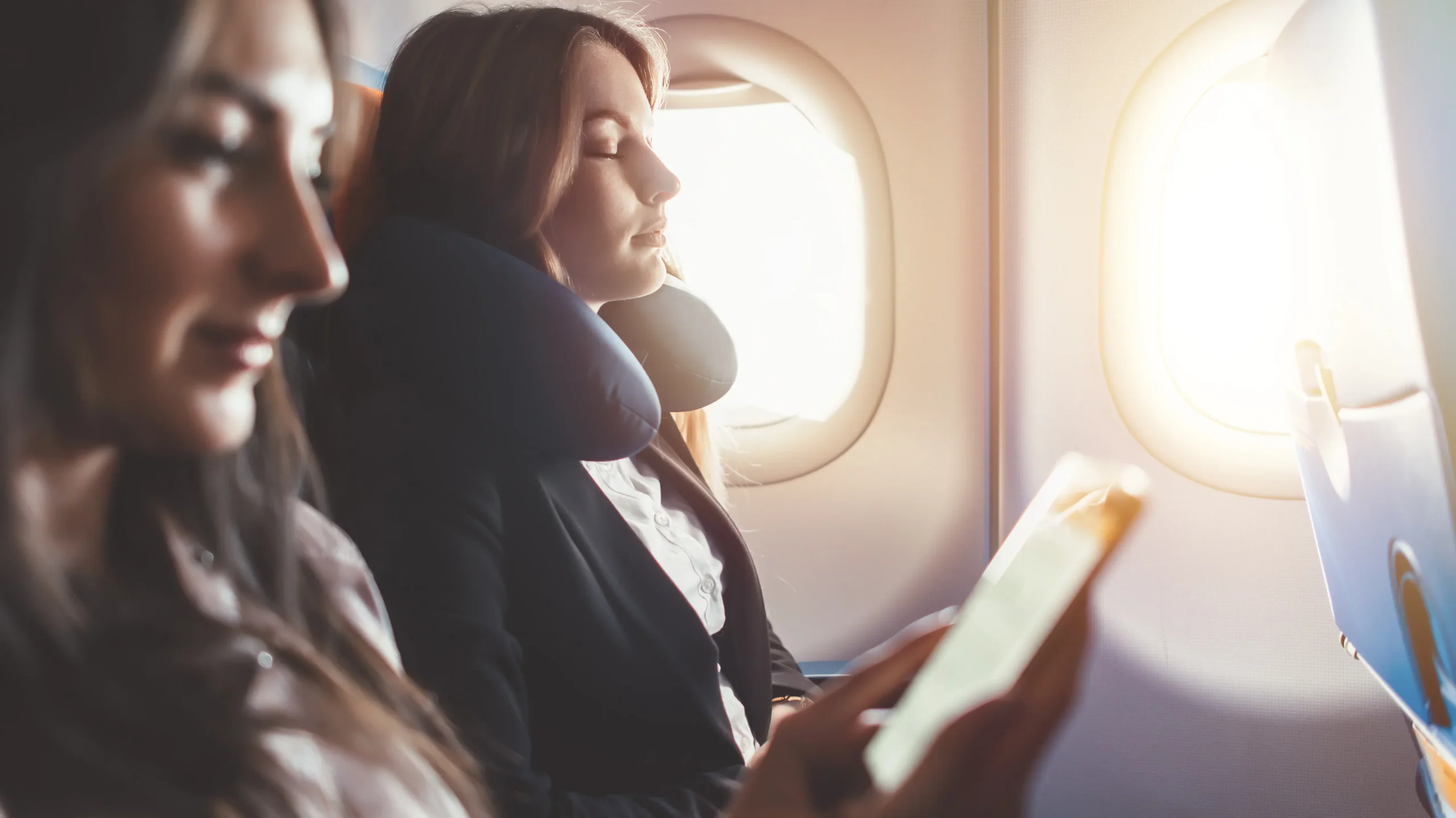Flying can be a source of anxiety for many people, with about 2.5 percent of the population diagnosed with aviophobia, or fear of flying. However, generalized anxiety or nervousness around flying is far more common. If you’re traveling with someone who experiences anxiety about flying, there are ways you can support them before, during, and after the flight. Here are 10 tips for helping anxious flyers feel more comfortable:
Ask How You Can Help
The first step in supporting an anxious flyer is to ask them how you can best support them. Some may want you to hold their hand and remind them to breathe, while others may prefer quiet reassurance. Knowing in advance how you can support them will help alleviate their anxiety.
Don’t Try to Talk Them Out of It
Anxiety is often tied to fear, and simply trying to rationalize with someone experiencing anxiety may not be effective. Instead of trying to change their logic, be present with them, calm, and supportive.
Mentally Prepare Ahead of Time
For those with severe anxiety about flying, it’s crucial to talk with them ahead of time and make a plan to manage their anxiety. Encourage them to speak to their doctor about medication options if necessary.
Talk to Flight Attendants
Consider having the anxious flyer inform the flight crew about their anxiety. Flight attendants can help make the person comfortable by answering questions, addressing concerns, and checking in on them periodically during the flight.
Validate Their Feelings
When an anxious flyer speaks up about their anxiety, validate their feelings before offering suggestions or solutions. Let them know that it’s okay to feel nervous, and reassure them that you’re there for them.
Provide Distractions
Bring along activities to keep the anxious flyer occupied during the flight. This could include books, podcasts, or downloaded movies. Limit choices to avoid decision-making stress.
Use Positive Play with Kids
If traveling with anxious children, use play as a way to familiarize them with the flying experience. Bring comfort objects and engage in activities to make the experience more enjoyable for them.
Lead by Example
Stay relaxed and calm during the flight. Celebrate any successes or accomplishments, no matter how small, to reinforce positive experiences with flying.
Allow for Adjustments
Recognize that stress and anxiety can impact the body, so be flexible with post-flight plans. Allow time for rest or adjustment based on how the anxious traveler is feeling.
Take Care of Yourself
As the support person, it’s essential to take care of your own needs as well. Ensure you’re well-rested, hydrated, and patient, so you can effectively help someone experiencing anxiety.
Supporting an anxious flyer requires patience, understanding, and empathy. By implementing these tips, you can help make the flying experience more manageable for both yourself and your anxious loved one.

